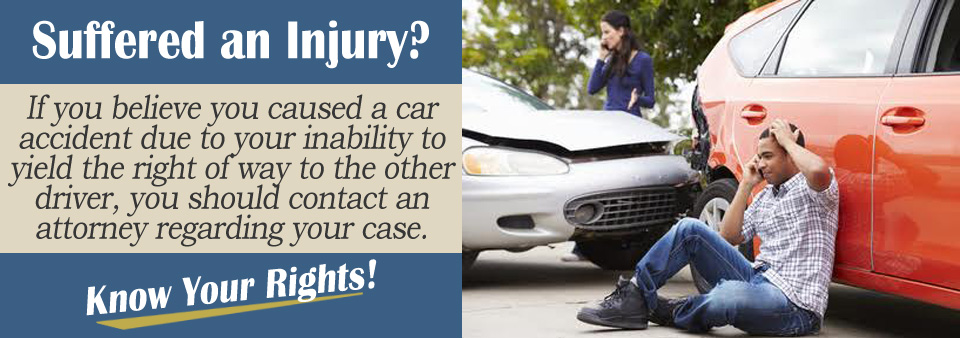Not all situations are black and white when it comes to a car accident. You can be doing everything possible to keep yourself safe on the road, but sometimes things get in the way. What if you do in the event you are not able to yield the right of way to another driver and this results in a car accident? Who is liable for fault?
We have asked attorney Alaina Sullivan about what you should do. Here is what she had to say:
Duty of Care
Each driver is charged with a duty to use reason and caution when operating a motor vehicle. That duty includes following rules of the road and traffic laws, including yielding the right of way to other drivers.
The driver also has a duty to ensure that he or she does not put others in a situation where he or she cannot properly yield the right of way. In this situation, it depends on the circumstances. What were you doing to keep you from yielding? Were you driving too fast or not paying attention?
If you were not able to yield due to your own negligence, you would be held liable for damages caused from the accident.
Unavoidable Circumstances
However, if you were in a situation where you were driving with caution but still could not yield the right of way, by no fault of your own, these circumstances could be taken into consideration in mitigating fault. If you were the still the driver who caused the accident, you will still be at fault, but to a reduced amount.
Insurance companies and courts look at personal injury claims by the totality of circumstances, including those circumstances that you controlled as well as those you did not control. The court or insurance company will look at whether you could have avoided these unforeseen circumstances or could have at least attempted to reduce the severity of them.
Ultimately, it depends on the facts, and if you present them properly and show that you were attempting to be reasonable in the way you handled the situation, your percentage of fault could potentially be reduced, meaning you would be paying less for damages.

Duty of the Other Driver
At the same time, the other driver similarly holds a duty of care while driving. While he or she may not have been breaking any specific traffic laws, that driver also holds a duty to act cautiously and be aware of everything around him or her. That includes anything that may lead to an accident.
If the driver sees that you are not able to yield to him or her, that does not mean he or she can proceed into an intersection or continue driving and just wait for an accident occurs. Whether that person is in the right does not matter.
If it is at all possible to avoid injury or damages, the other driver needs to stop or do anything that is possible under safe circumstances to avoid the accident. If he or she chooses to not do this deliberately, then a portion of the fault could be attributed to that driver.
Contact an Attorney Today
If you believe you caused a car accident due to your inability to yield the right of way to the other driver, you should contact an attorney regarding your case. A licensed personal injury attorney will be able to evaluate your case and determine if you have a claim against the other party’s insurance company.
To receive the compensation for your medical bills, property damages, and pain and suffering, you should speak with a personal injury attorney in your area today.